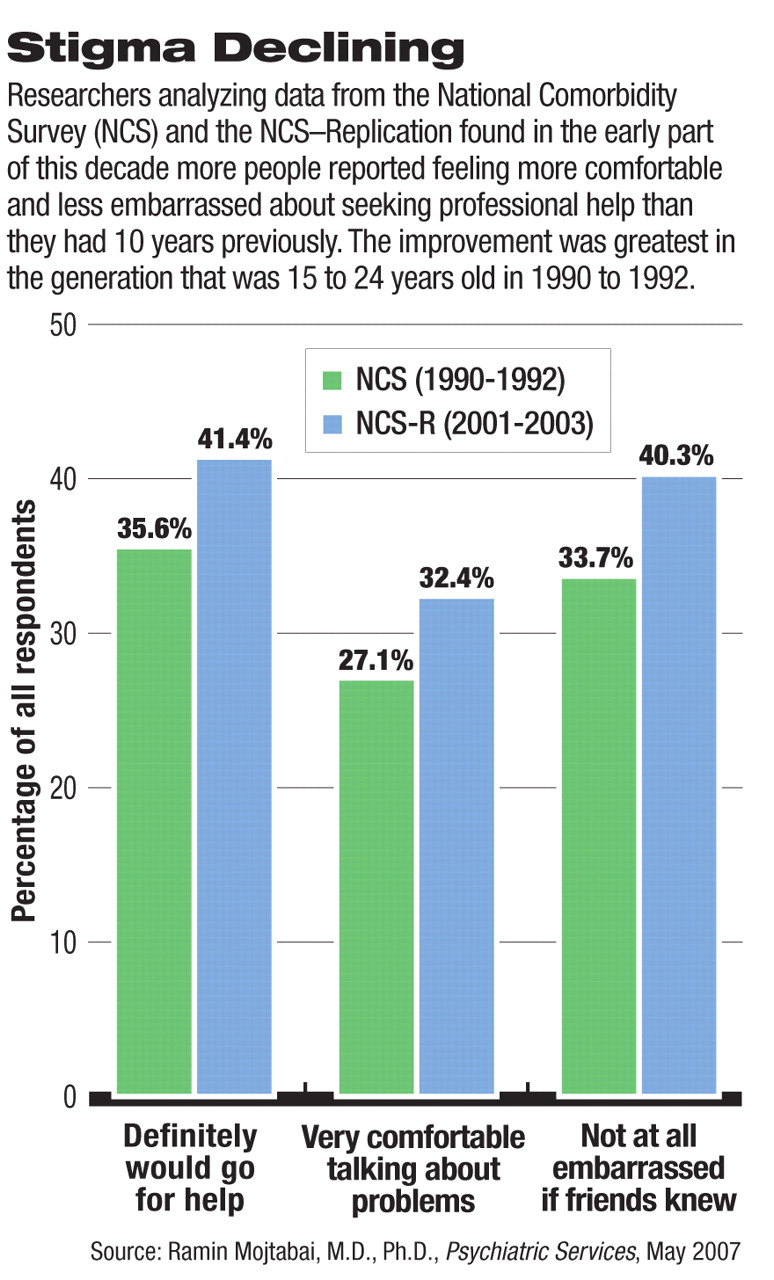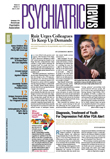Seeking treatment for mental health problems has become more acceptable since the early 1990s, according to a new study. The more positive attitudes toward treatment over time may have contributed to a growing demand for mental health services over recent years.
Data comparing attitudes toward mental health treatment in two nationally representative surveys showed that 27.1 percent of those surveyed between 1990 and 1992 reported being “very comfortable” with talking to a professional about personal problems, compared with 32.4 percent of those surveyed between 2001 and 2003.
The findings appeared in the May Psychiatric Services.
Lead author Ramin Mojtabai, M.D., Ph.D., told Psychiatric News that although he couldn't draw any definitive conclusions about these findings, he believed that a number of changes in the mental health field may have shifted attitudes for the better. Mojtabai is a PGY-3 resident in psychiatry at Beth Israel Medical Center in New York.
Throughout the 1990s there was an increase in direct-to-consumer marketing of antidepressants, he explained, and a surge in depression-prevention and suicide-screening programs. This may have had a positive effect on public attitudes toward treatment.
To detect these trends in attitudes about mental illness, Mojtabai compared data from respondents to the 1990-1992 National Comorbidity Study (NCS) with those from the 2001-2003 NCS–Replication (NCS-R), both of which studied mental health problems and treatment in the United States.
For the NCS, researchers interviewed 8,098 randomly selected people aged 15 to 54 in their homes. For the NCS-R 10 years later, they interviewed a separate, randomly selected sample of 9,282 adults over age 18 in their homes.
Three questions generated responses on attitudes toward mental health treatment: Participants reported whether they would seek help for a serious emotional problem on a scale ranging from “probably” to“ definitely not,” the degree to which they were comfortable talking about personal problems to a professional, and the degree to which they would be embarrassed if their friends knew they were getting professional help for an emotional problem (see chart). Responses to these questions were categorized on a scale from 0 to 3, with higher scores indicating more positive attitudes toward treatment.
Mojtabai found that 35.6 percent of respondents to the NCS reported that they would “definitely” go for professional help for a serious emotional problem, compared with 41.4 percent of NCS-R respondents. He also found that 33.7 percent of NCS respondents reported that they would not be embarrassed if friends knew about their getting professional help. This number jumped to 40.3 percent for respondents to the later survey.
When Mojtabai analyzed the findings by age, he found that adults aged 18 to 34 in the NCS-R had more positive attitudes toward mental health treatment seeking than adults of the same age did in the original NCS. However, adults in the 35 to 54 age range showed little change in attitudes at the two time points.
“Although attitudes toward mental health treatment seeking improved in all generations,” he said, “the improvement was greatest in the generation that was 15 to 24 years old in 1990 to 1992.” This may be because they had more exposure to public-information campaigns and other positive media messages about mental illness, Mojtabai speculated.
Data based on logistical regression analyses of treatment-seeking attitudes showed that black participants were 56 percent more likely to have a positive attitude toward treatment than were whites.
In addition, respondents with a history of mental health treatment were 68 times as likely to have a favorable attitude toward mental health treatment as those who didn't.
Mojtabai said future research should explore what specific factors impact attitude toward mental health treatment. “We also need to examine the impact of attitudes on service use,” he noted.

